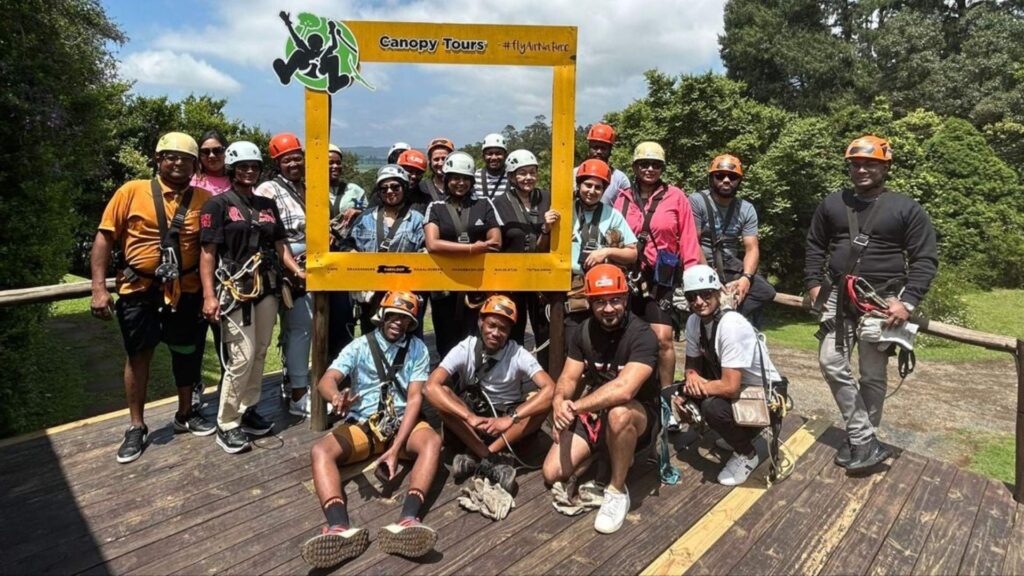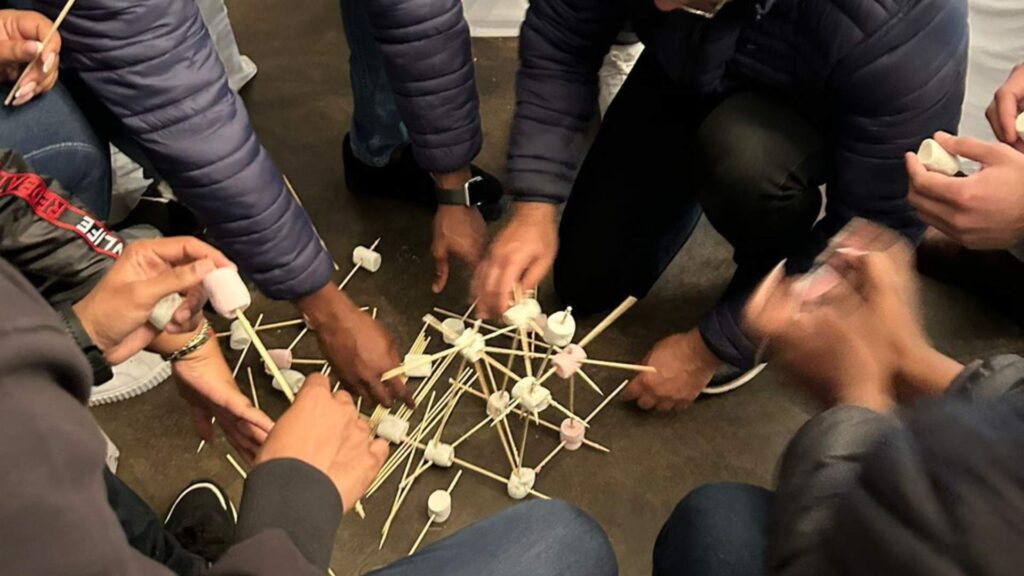Key Takeaways:
- Team Building Works – Psychological principles like Social Identity Theory and Psychological Safety explain its effectiveness.
- Trust & Communication Matter – Open dialogue and a safe environment foster collaboration and innovation.
- Shared Experiences Strengthen Bonds – Group activities create lasting connections and improve teamwork.
- Clear Goals Drive Success – Defining objectives ensures team-building activities align with business needs.
- Inclusivity Boosts Performance – Diverse and inclusive teams are more engaged and productive.
- Tech Enhances Remote Team Building – Virtual tools help distributed teams stay connected.
- Measure & Adapt – Regular assessment ensures continuous improvement in team dynamics.
Introduction
Team building is more than just a corporate buzzword—it’s a scientifically backed method for improving workplace performance, collaboration, and employee satisfaction. Understanding the psychology behind it can help businesses create high-performing teams that drive productivity and innovation. In this article, we’ll explore why team building works, the psychological principles behind it, and how businesses like Nicolosi Networking Solutions can apply these insights for success.

Why Team Building Works: The Psychological Foundations
1. Social Identity Theory
Social Identity Theory, developed by Henri Tajfel and John Turner, states that people derive part of their self-esteem from the groups they belong to. When employees feel connected to their team, they are more motivated to contribute, work collaboratively, and uphold team values. Team building fosters this sense of identity, leading to increased loyalty and performance.
2. Trust and Psychological Safety
Amy Edmondson, a Harvard Business School professor, introduced the concept of psychological safety, which refers to an environment where team members feel safe to take risks and express their ideas without fear of criticism. Effective team-building exercises create trust and reinforce psychological safety, allowing employees to share innovative ideas and collaborate more effectively.
3. The Power of Shared Experiences
Neuroscience research suggests that shared experiences strengthen social bonds by activating mirror neurons, which help individuals empathize and connect with others. Activities create meaningful shared experiences, fostering stronger relationships and improving communication within teams.
4. Reinforcement Theory and Positive Reinforcement
B.F. Skinner’s Reinforcement Theory explains that behaviors followed by positive outcomes are more likely to be repeated. Exercises that reward cooperation, problem-solving, and communication reinforce these behaviors, making them more common in daily work interactions.
Applying the Psychology of Team Building in the Workplace
1. Establish Clear Goals and Purpose
Successful team building starts with a clear purpose. Identify what you want to achieve—whether it’s improving communication, enhancing collaboration, or resolving conflicts. Nicolosi Networking Solutions, for example, helps businesses align their team-building strategies with organizational goals to maximize effectiveness.

2. Choose Activities that Promote Collaboration
Select exercises that encourage teamwork and problem-solving. Activities like escape rooms, hackathons, or group brainstorming sessions can help employees develop trust and enhance their collaborative skills.
3. Foster an Inclusive Environment
Research from the American Psychological Association highlights that inclusive teams are more innovative and productive. Ensure that all employees feel valued and included in activities by considering diverse interests and communication styles.
4. Encourage Open Communication
Exercises should emphasize open and honest communication. Implementing regular feedback sessions and active listening exercises can improve team dynamics and help resolve conflicts before they escalate.
5. Leverage Technology for Virtual Workshops
With the rise of remote work, virtual workshops are more important than ever. Platforms like Microsoft Teams, Slack, and Zoom offer interactive tools for virtual collaboration. Nicolosi Networking Solutions specializes in digital team-building strategies that help remote teams stay connected and engaged.
6. Measure and Adapt Your Approach
Regularly assess the impact of team-building initiatives using employee surveys, performance metrics, and feedback sessions. This data-driven approach allows businesses to refine their strategies and ensure continuous improvement in team dynamics.
Conclusion
The psychology is rooted in scientific principles that enhance collaboration, trust, and productivity. By understanding the psychological factors that drive successful teams, businesses can implement effective team-building strategies that yield long-term benefits. Nicolosi Networking Solutions provides expert guidance in building cohesive teams through tailored strategies that align with organizational goals. By applying these psychological insights, companies can create high-performing teams that thrive in today’s competitive business environment.


